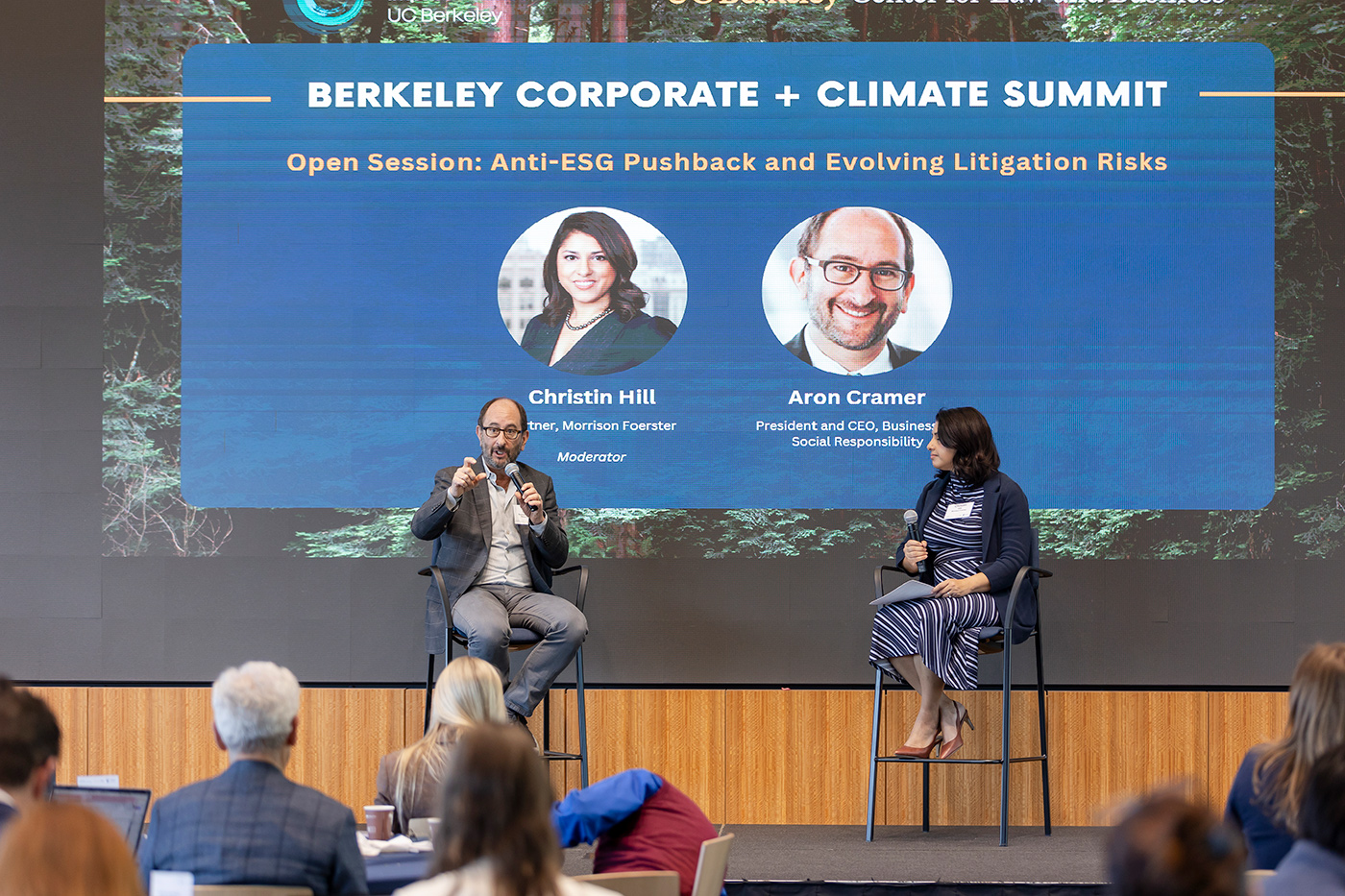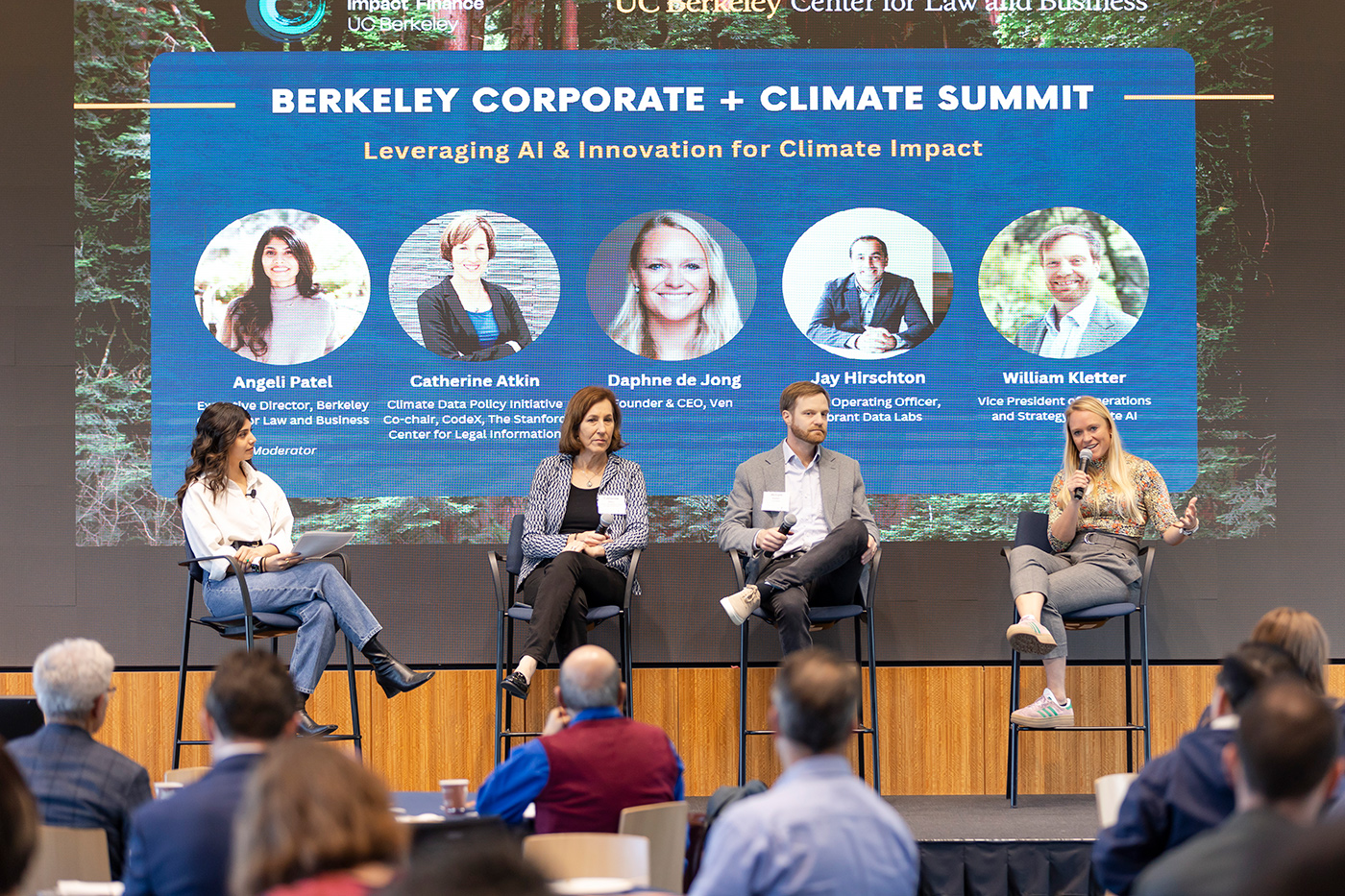
By Gwyneth K. Shaw
At the Berkeley Center for Law and Business’s (BCLB) inaugural Corporate + Climate Summit a year ago, participants discussed how far the concept of sustainability and corporate responsibility had come.
This year’s edition — with a new president rolling back environmental regulations and attacking a variety of corporate practices, particularly diversity, equity, and inclusion (DEI) initiatives — many of the conversations were about how to preserve and bolster that progress.
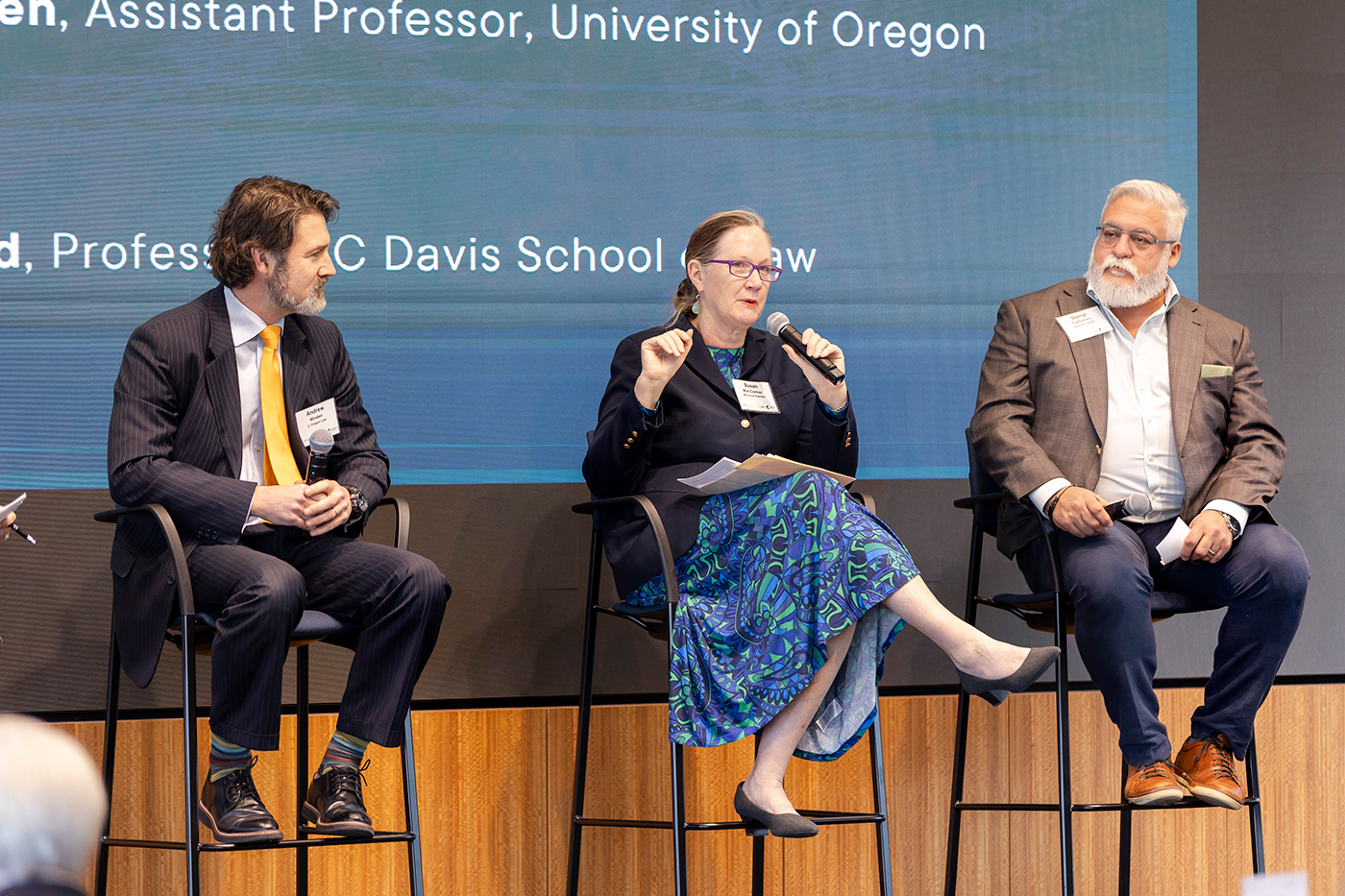
The summit, hosted and co-sponsored by UC Berkeley’s Haas School of Business, gathered leaders from business, government, academia, and advocacy to address the evolving landscape of corporate responsibility and climate action.
“The anti-ESG forces are real, and they’re here to stay,” UC Berkeley Law lecturer Susan Mac Cormac said about the ongoing pushback against the ESG (environmental, social, and governance) movement, which urges companies to factor ethical and sustainability considerations into their decisions.
Co-chair of Morrison Foerster’s ESG + Sustainability and Social Enterprise + Impact Investing practices, Mac Cormac sat on a panel that analyzed how to align the corporate form and governance to promote better climate outcome, moderated by UC Davis Law Professor Amelia Miazad ’02.
Mac Cormac also helped plan the conference with UC Berkeley Law Professor Stavros Gadinis, BCLB’s Faculty Director, and Haas Professor Panos N. Patatoukas.

“I think companies in this climate are going to be less transparent and less likely to share what they’re doing,” said UC Berkeley Clinical Professor Alina Ball, who leads the law school’s new Social Enterprise Clinic, during the same panel. “Everyone just feels a bit more scrutinized and a bit more under siege right now.”
Looking ahead
But amid the unease, many of the speakers — experts and leaders across a wide spectrum of business interests — expressed a sense of both optimism and determination, emphasizing that the fundamental problem of climate change remains.
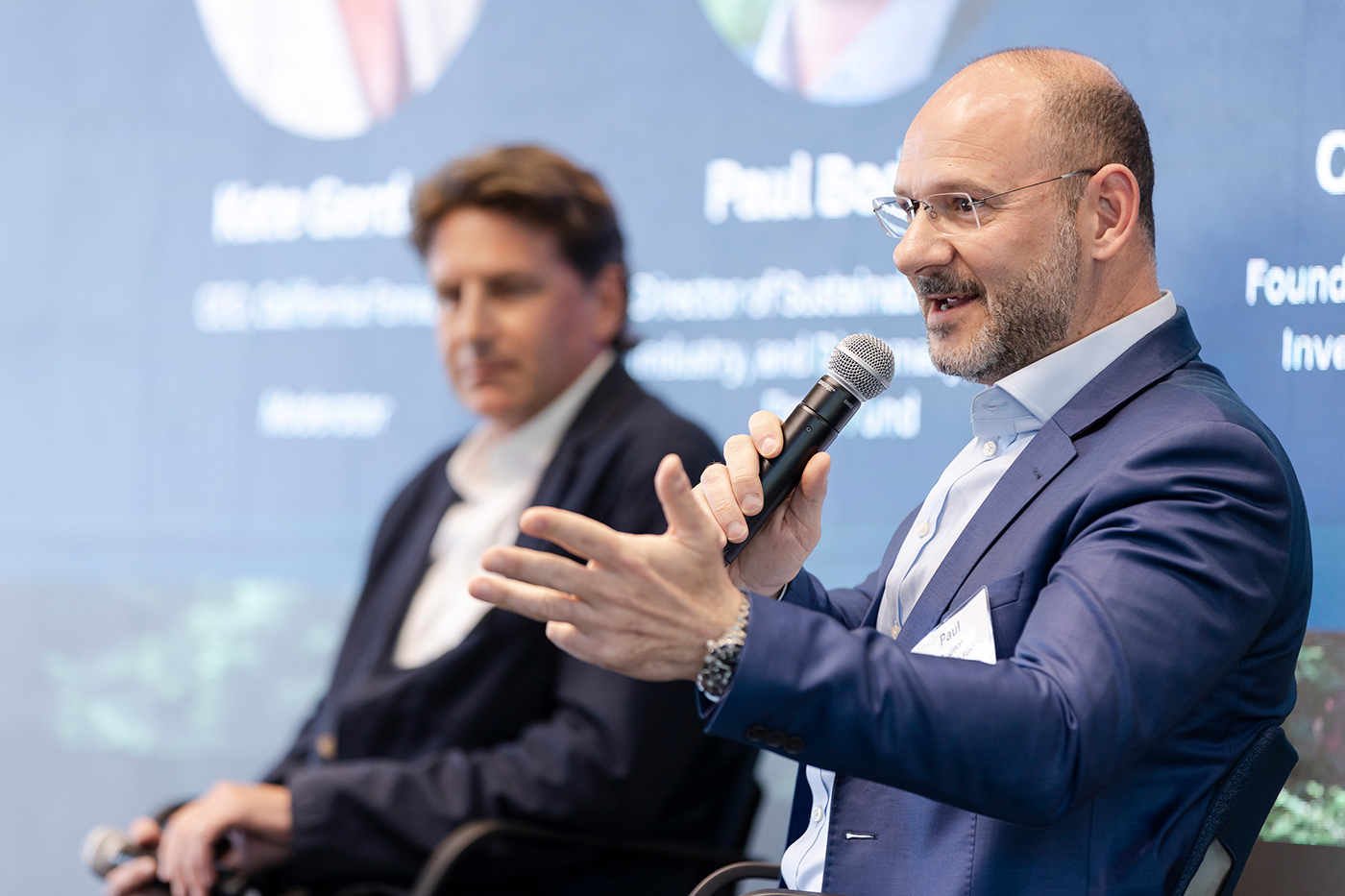
“Climate-proofing life on Earth is a growth industry,” Bezos Earth Fund Sustainable Finance, Industry, and Diplomacy Director Paul Bodnar said during a lunch keynote session about the state of the climate finance sector.
Many thriving companies that don’t necessarily market themselves as climate oriented are nonetheless part of the industry working to mitigate the impact of rising seas and temperatures and the greater threats of severe weather incidents, he said. From water pumps to drought-resistant seeds, these companies are a “huge and exciting piece of the climate puzzle,” he added.
And as technologies continue to advance, they’ll continue to be integrated into sustainability efforts. For example, artificial intelligence (AI) has a rapidly growing potential to aid in risk monitoring, decision-making, and reporting outcomes, panelists said.
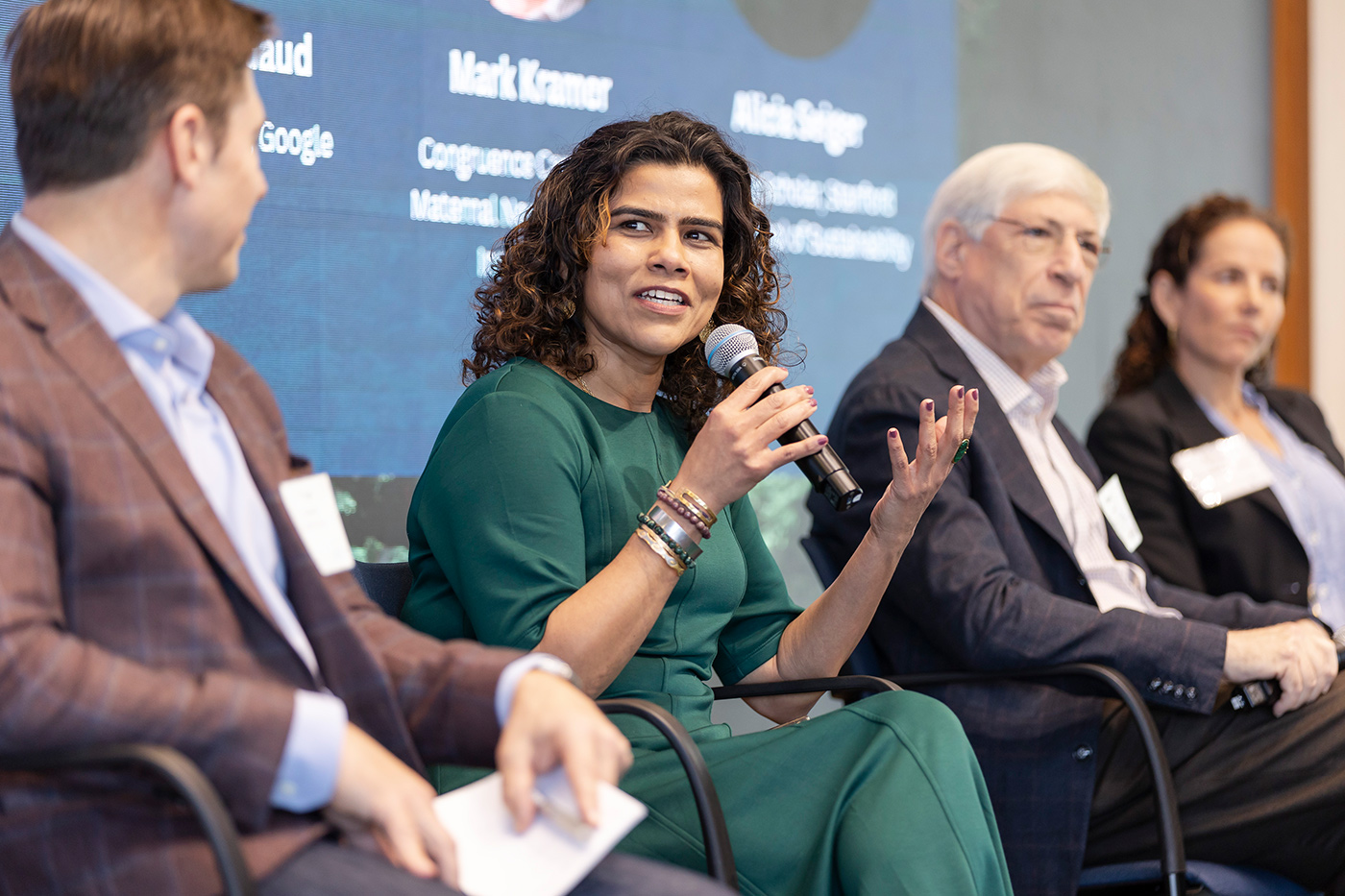
The space sector is also leveraging significant tools to help companies better understand and respond to a changing climate. The closing keynote speaker, Planet Labs co-founder and Chief Strategy Officer Robbie Schingler, outlined how his company’s 200 satellites in low Earth orbit are building an enormous database of imagery with eight years of data.
“All of that is extremely useful for doing backcasting and therefore forecasting and training good models,” Schingler said. “Specific models that mean something whether you are a utility, or whether you are a farmer, or whether you are a reinsurer, you can actually train your own models in order to then have those be real-time indicators for the things that matter to you.”
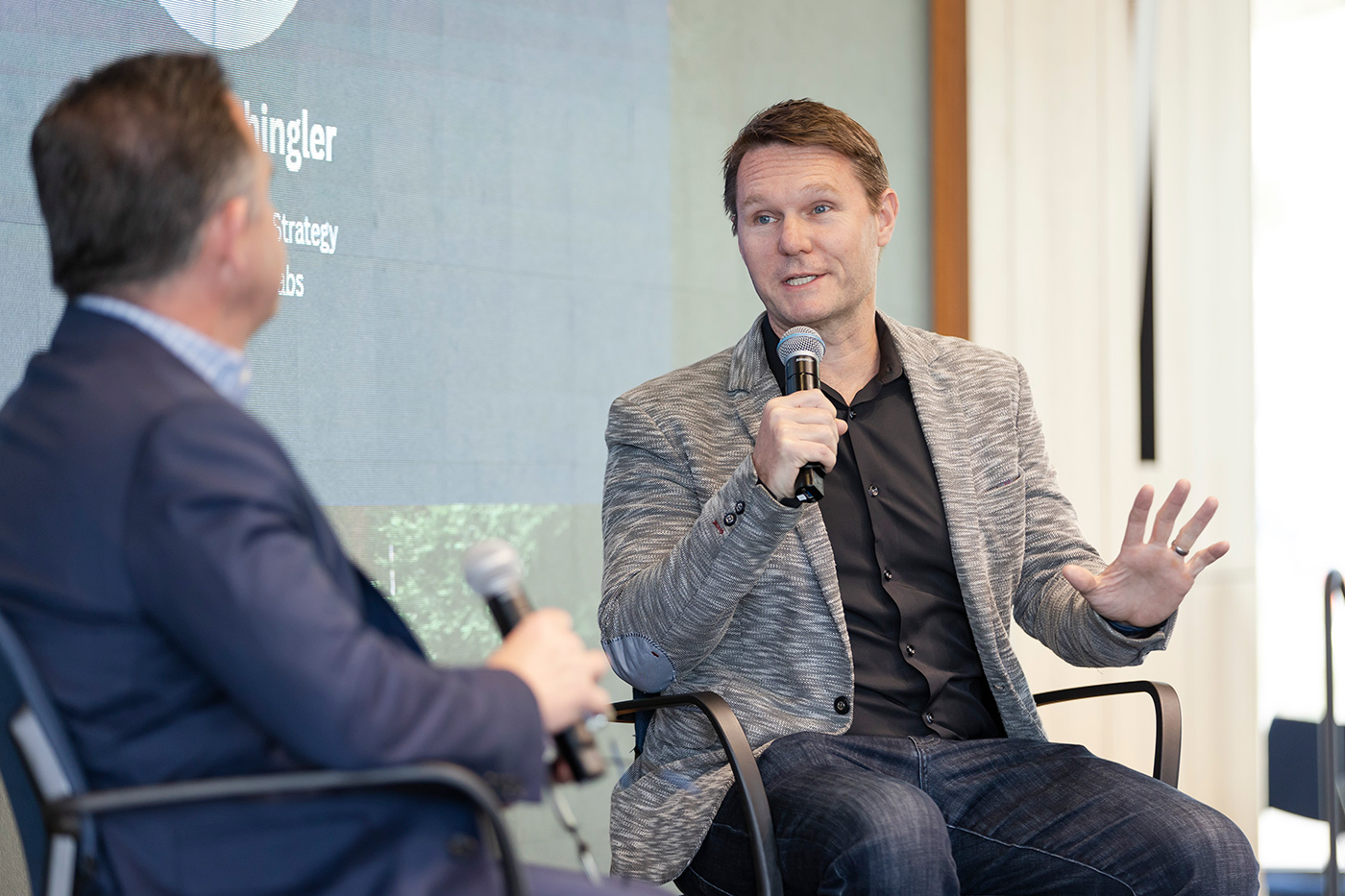
For example, he explained, Planet Labs has worked with PG&E to help the company identify areas at high risk for fires, allowing the utility to send trucks and workers to those places in advance.
Ultimately, as the landscape shifts and particular terms fall in and out of favor, companies “need a clear sense of their red lines and their north stars,” President and CEO of Business for Social Responsibility (BSR) Aron Cramer said during a conversation about the pushback to ESG with Morrison Foerster Partner Christin Hill.
Hill commented that ESG and DEI are often lumped together for criticism and asked whether that was fair. The two initiatives face similar challenges, Cramer said, because they can be abstract and are not well understood, leaving them ripe for mischaracterization.
“The answer for companies is to demystify these things,” he said. “At BSR we’re not using ‘DEI’ so much anymore — we’re talking about inclusive business. How can you be against inclusive business?
“Let’s just be smart about the language and strategic about it.”
